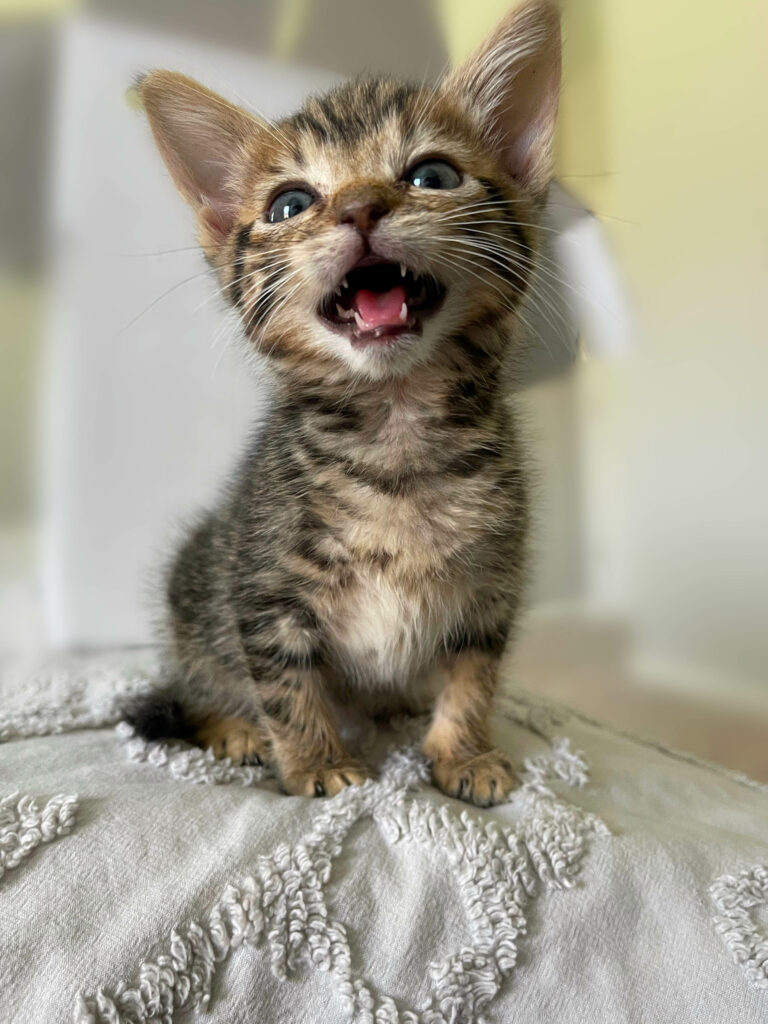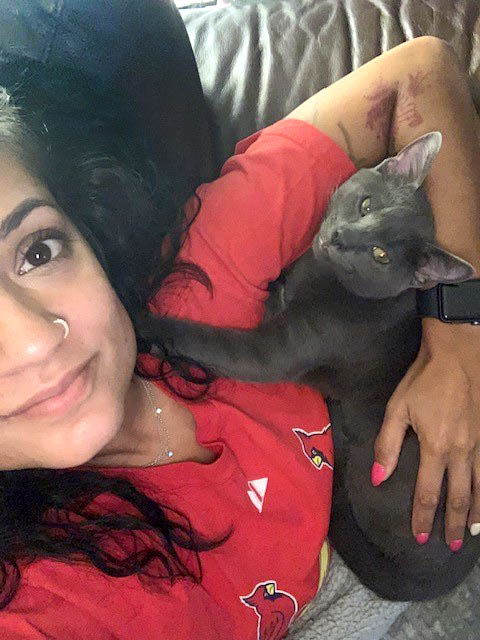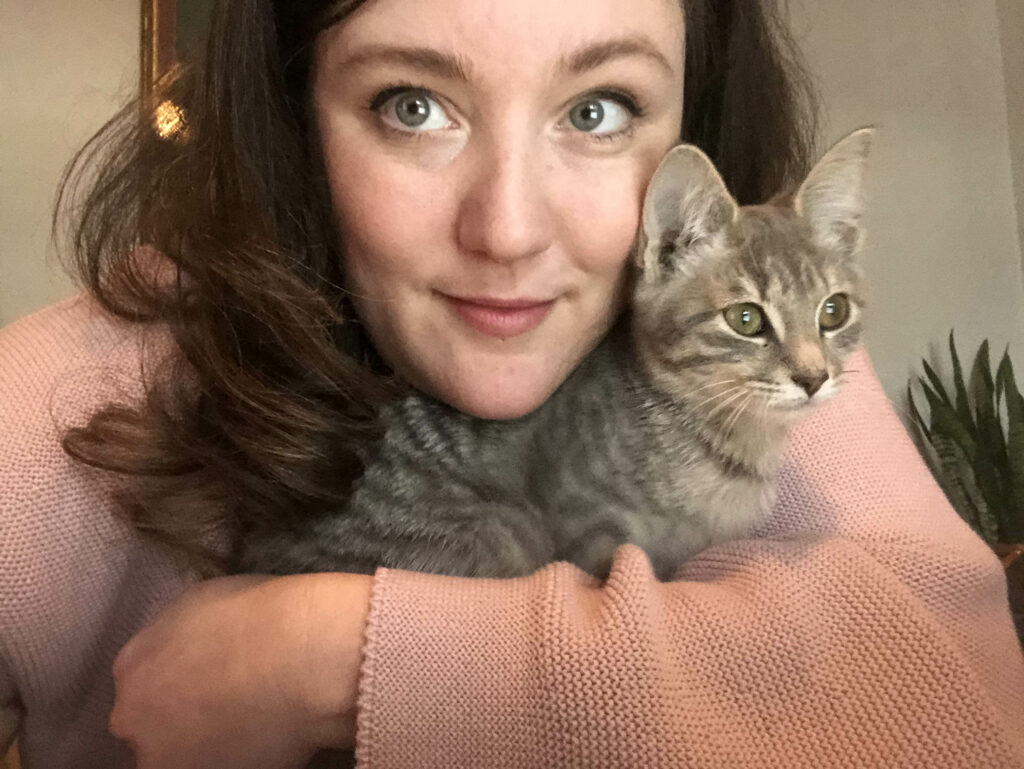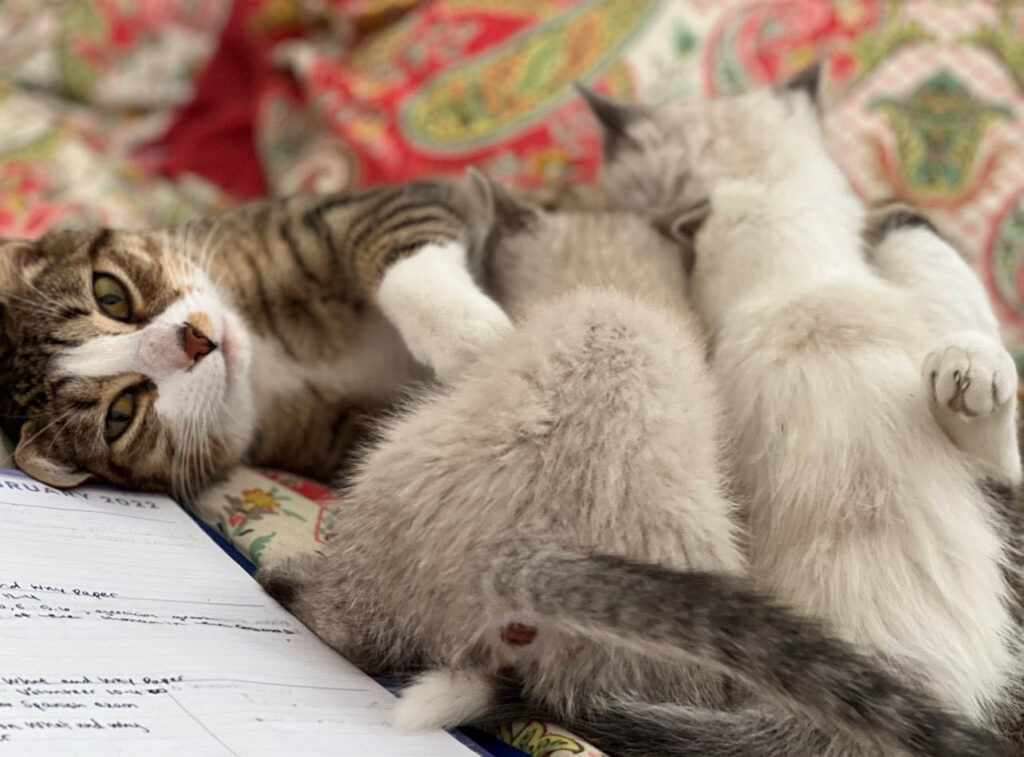Last year at Memphis Animal Services, the city of Memphis’s municipal animal shelter, everyday people volunteering as foster parents saved the lives of nearly 600 newborn orphaned kittens. Without foster families, these tiny felines, often affectionately referred to as “bottle babies,” would die, because they’re too little to eat or eliminate on their own.
“On a practical level, they’re a lot like human newborn infants who have to be fed every few hours and have their ‘diapers changed’,” said MAS Cat Shelter Supervisor Dani Rutherford. “The best caretaker for them is Mom, but in situations where Mom isn’t available, we rely on foster parents to step in to save their lives.”
These kittens are often the unintentional offspring of community cats who have not yet been humanely trapped, spayed/neutered, and returned to their outdoor habitats. Nature can be harsh, and there are a number of reasons a cat may be forced to abandon her kittens, from lacking maternal instincts to getting injured and others.
Regardless of the reason, orphaned newborn kittens need a lot of support to survive, and that’s where foster families come in, says Rutherford.
“We provide everything you need from the kitten formula to the training on how to care for the babies,” Rutherford said. “Although there’s no replacement for Mom, our foster parents do everything the kittens need– from bottle-feeding them and helping them eliminate every few hours, to keeping them warm and making sure they’re gaining weight.”
Nearly 350 foster parents helped care for MAS cats in their homes in 2021. One of those was Mindy Bush, an IT professional who lives in the Cordova area. She started fostering for MAS several years ago when she saw a plea for bottle babies on Facebook.
“When I saw the post, I got a carrier out and headed to the shelter. I did not think twice about it,” Bush said. “I knew nothing about neonates—or cats, really—but I had the best time learning and watching them grow.”
Since then, she has fostered around 50 cats for MAS and other groups, including cats with special medical and behavioral needs, and of course bottle babies. Last year, among her foster pets were three 2-week-old kittens: Juan, Jorge, and Jose.
But newborns aren’t the only kittens in need of foster homes. MAS took in about 600 weaned kittens last year, too.
“These kittens are old enough to eat on their own, but they’re not big enough for the spay/neuter surgery that a finalized adoption requires,” said Rutherford. “So they need a safe spot for playing and socialization that will also keep their vulnerable kitten immune systems away from the shelter environment.”



Tanisha Keshav, a healthcare administrator who lives in Germantown, recently fostered Hatter, a beautiful gray kitten who came to MAS at around three months old after being removed from a home with too many cats. She cared for him in her home for about 2.5 months until she found the perfect adopter for him.
“It means the world to me to be able to help animals,” said Keshav. “To be a part of such an important transitional phase of their lives is rewarding to me in a sense that I get to be the one to witness their growth and their love.”
The luckiest kittens are the ones who stay with their mom until they’re weaned. When Memphis Animal Services takes in a nursing mother cat and her babies, they much prefer to place them in a foster home until the kittens are weaned. Midtowner and research manager April Steele has experienced the fulfillment of fostering a nursing mom and her four babies.
“Mama was so stressed out at the shelter, her kittens were sick, and they desperately needed to be in a quiet, comfortable space,” said Steele. “It was rewarding to be able to make sure this little family was cared for at a time when they were most vulnerable.”
Many MAS employees, including veterinary assistant Laura Crosby, love to help beyond their work shifts by fostering pets. Crosby has fostered around 40 cats and kittens for MAS and other groups since getting started six years ago.
“Kittens are so fragile, and a shelter is no place for them to grow up,” Crosby said. “Through fostering, you are able to enjoy that kitten phase that everyone loves, send them on their way to new families, and help the next batch of kittens that need you.”
No matter your lifestyle or schedule, there is most likely a category of kitten you can help through fostering, said Rutherford.
“If you’re really busy, maybe a nursing mom and babies is right for you, because Mom does all the work for the babies, and you just take care of Mom,” she said. “If you can be home most of the day and night, maybe you could consider bottle babies. Or weaned kittens are kind of a middle ground—they can usually keep themselves busy as long as you have two or three together, but they’ll still need plenty of socialization and supervision from you!”
There are other ways to help orphaned kittens, even if you can’t foster.
“We go through hundreds of cans of KMR (special Kitten Milk Replacer formula) every year, not to mention all the other supplies we send home with our foster families,” said Rutherford. “Our foster program relies on donations of these items to save all the tiny lives!”
Memphis Animal Services has wish lists for their foster program through Amazon and Hollywood Feed, and the most needed items are powdered KMR, PetAg pet nursing bottles or kits, Miracle Nipples, SnuggleSafe microwave heat pads, kitchen scales, and both wet and dry kitten food.

Don’t Kit-Nap!
“If you find tiny kittens all alone outdoors, and they look healthy, don’t assume they’ve been abandoned. Mom may be around, and she is the very best caretaker for them. Keep an eye out from a safe distance to see if she comes back. You can even sprinkle flour around the nest to see if you see footprints. If she hasn’t come back in a few hours, the kittens need your help! Call 901-545-COPS to get assistance.”
-Dani Rutherford, Memphis Animal Services Cat Shelter Supervisor.


